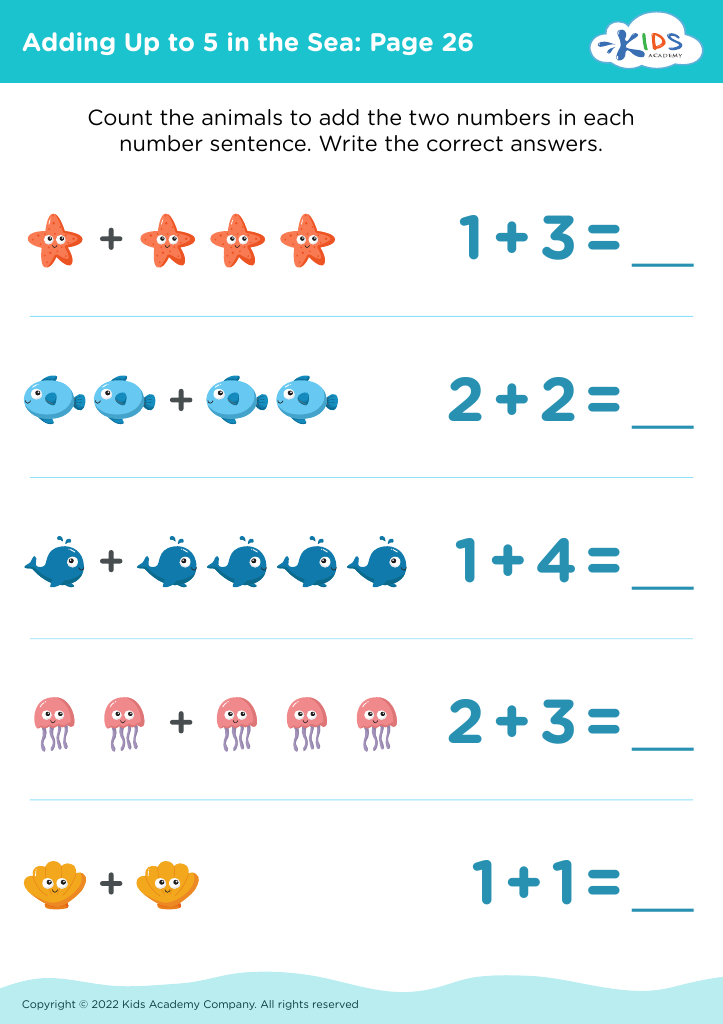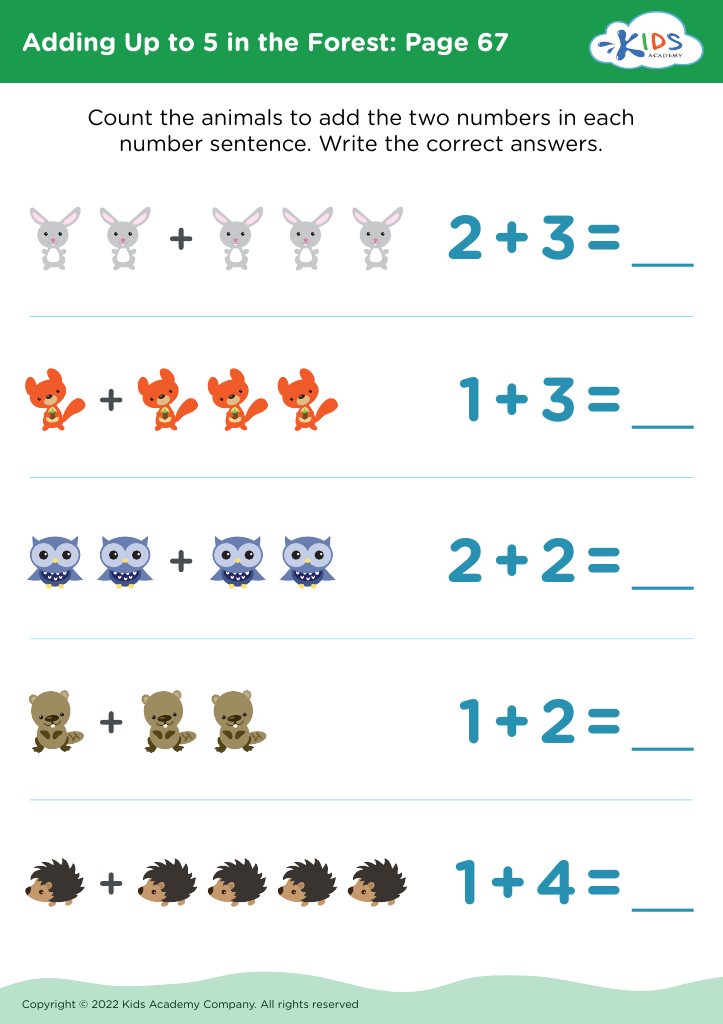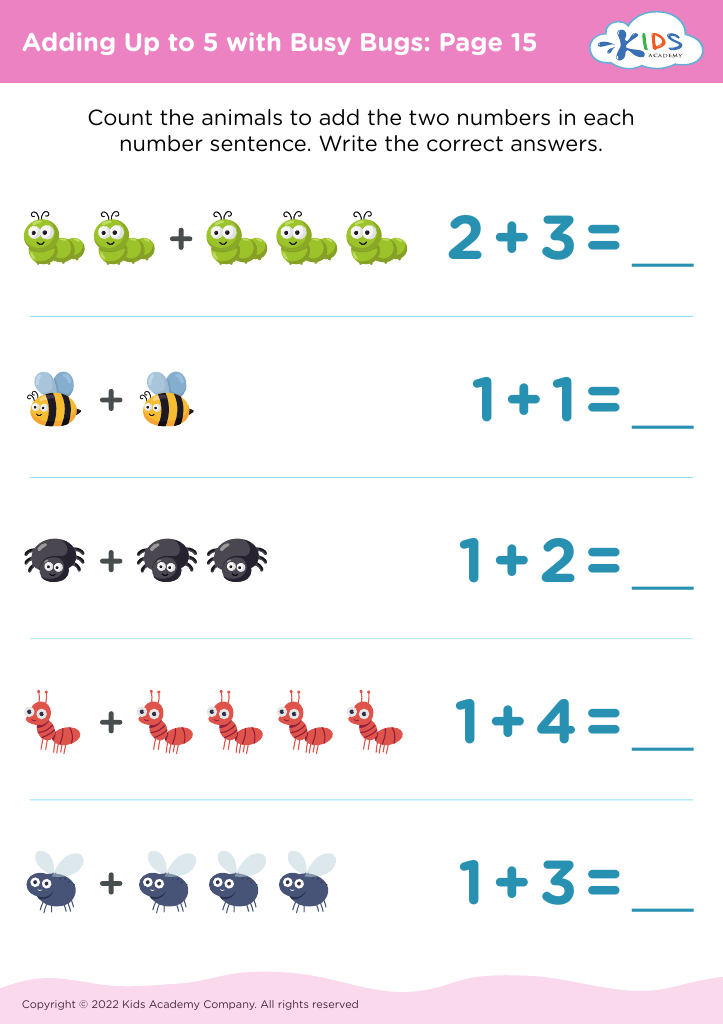Addition Practice Math Worksheets for Ages 3-5 - Page 5
102 filtered results
-
From - To
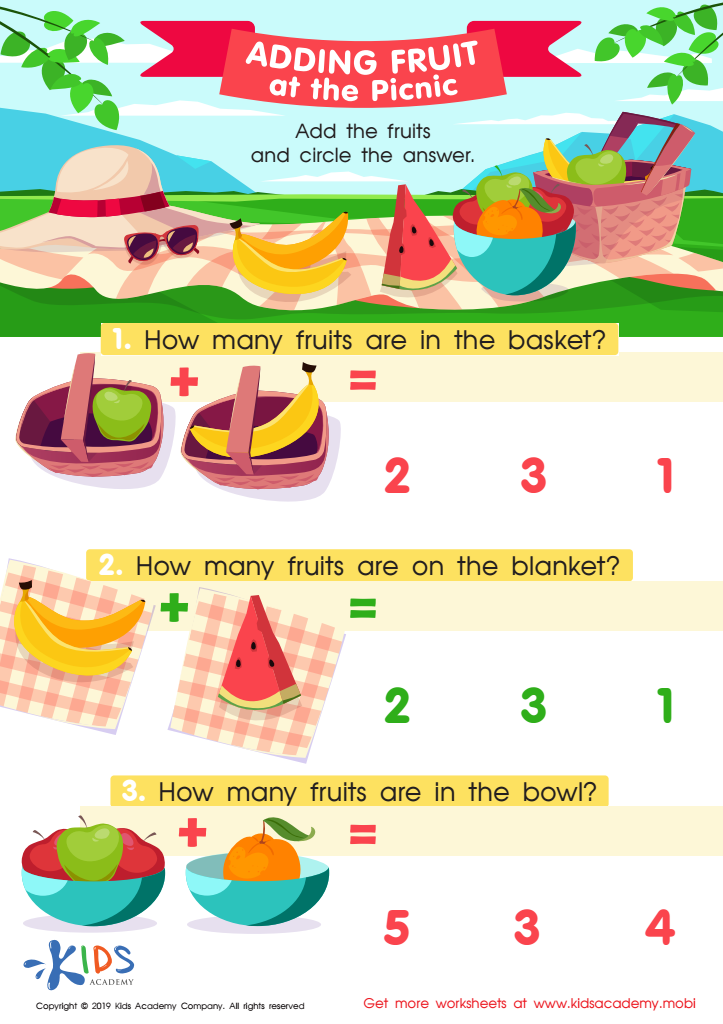

Adding Fruit at the Picnic Worksheet
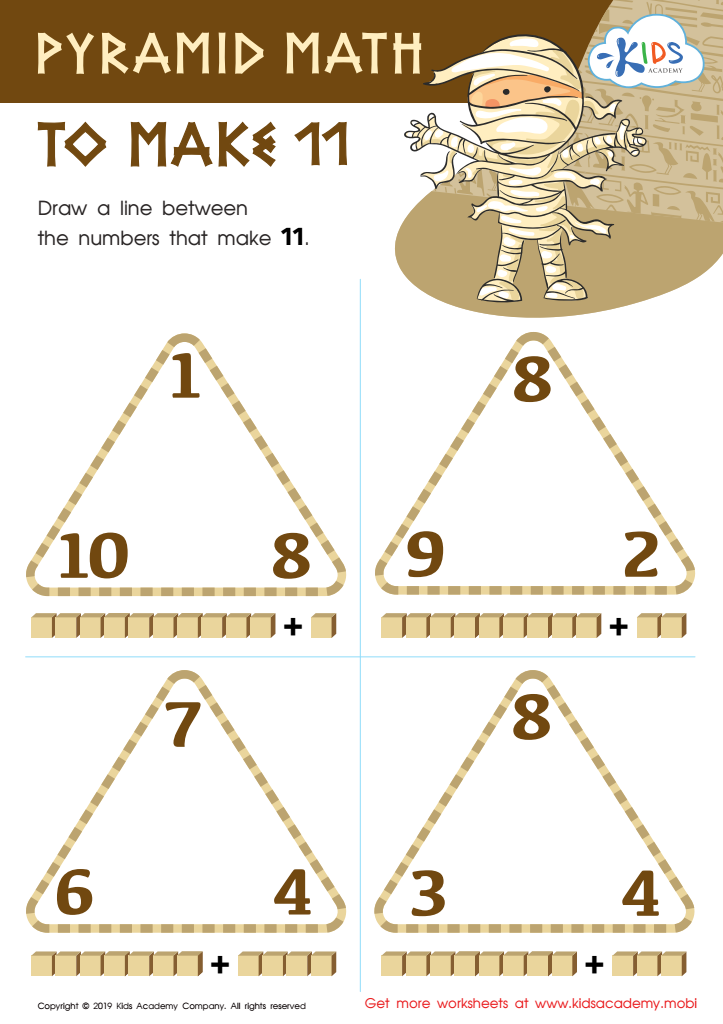

Pyramid Math to Make 11 Worksheet
Parents and teachers should prioritize addition practice math for children aged 3-5 because early mathematical skills are foundational for future academic success and cognitive development. Engaging young minds in addition helps them understand basic numerical concepts, encouraging a strong number sense and fluency in mental arithmetic.
Introducing addition at an early age fosters problem-solving skills, logical thinking, and pattern recognition. These critical thinking abilities extend beyond mathematics, improving overall learning capabilities. Early mathematical interactions are linked to higher scores in future education levels, creating a lasting positive impact on a child’s academic journey.
Furthermore, addition practice for 3-5-year-olds is often fun and interactive, integrating games, colorful visuals, and hands-on activities. Such play-based learning captivates young learners’ attention, making education enjoyable and laying a solid, positive foundation for lifelong learning attitudes.
Parents and teachers can observe progress and identify areas needing specific attention by monitoring a child’s addition abilities. This early intervention helps address learning challenges promptly. Inclusively nurturing these skills equips children with the confidence and independence needed for adapting to more complex mathematical concepts in later years.
Thus, caring for addition practice in early childhood isn't merely academic preparation—it builds a child's self-esteem, confidence, and enthusiasm for learning, setting them on a pathway to math proficiency and broader cognitive growth.
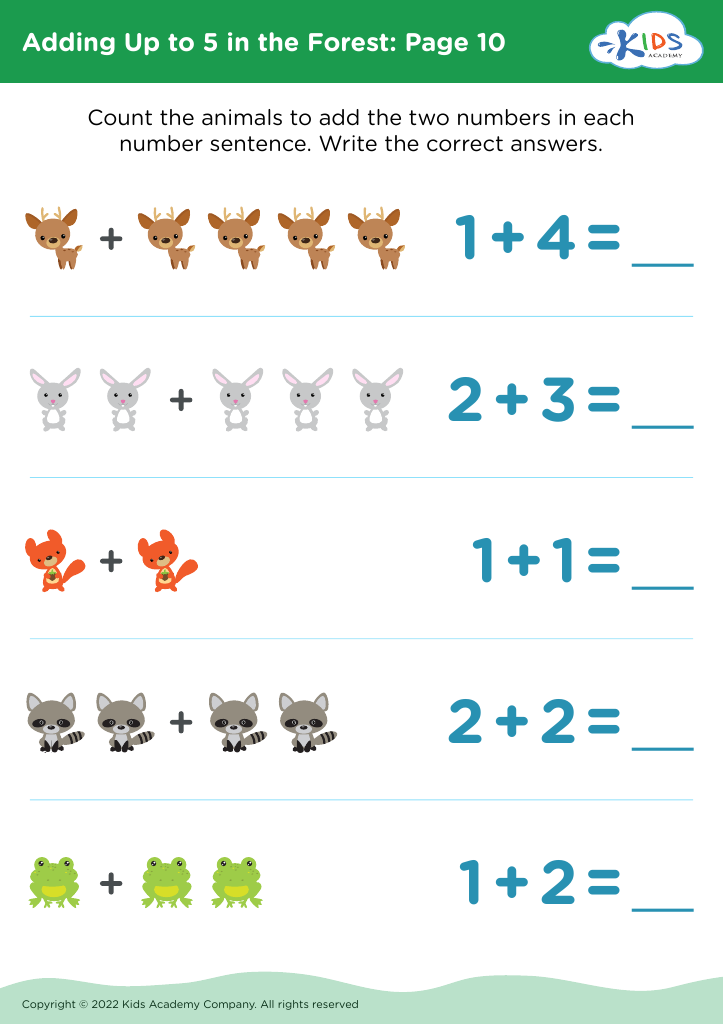

 Assign to My Students
Assign to My Students
